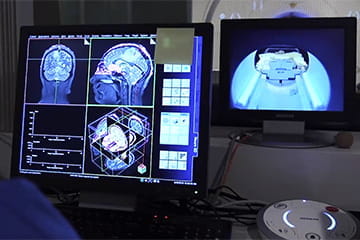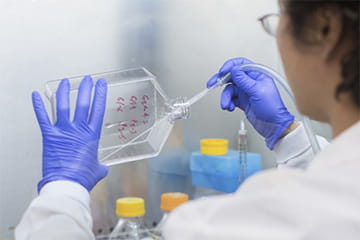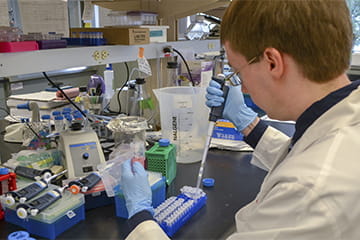Far from the arcane view of anatomy and physiology laboratories depicted in popular films from years past, contemporary anatomy and physiology research laboratories incorporate cutting-edge cell and molecular biology approaches—integrated with the structure-function relationships of molecules, cells, tissues and organs—to solve complex disease problems.
Department of Anatomy, Cell Biology & Physiology laboratories routinely incorporate such diverse and advanced techniques as CRIPSR/Cas9-based editing, super-resolution multiphoton optical imaging, massively parallel single-cell sequencing, high-throughput proteomics and metabolomics, lab-on-a-chip tissue engineering, 3D bioprinting, complex genetic animal models, noninvasive CT/PET/MR imaging, and many others.
Faculty in the Department of Anatomy, Cell Biology & Physiology are at the leading edge of discovery in the fields of neuroscience, musculoskeletal biology and integrative physiology, because they are able to investigate disease process in a structural framework that incorporates technical advances from a number of subdisciplines.
Focus Areas
Faculty research in the department focuses on three areas.


